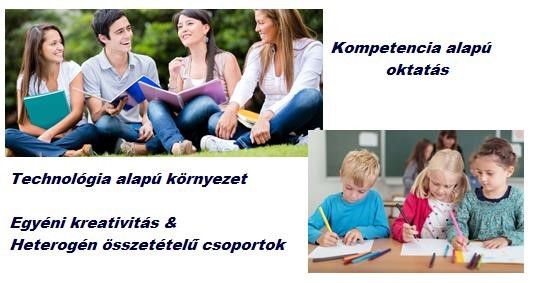Our educational systems have to be reformed
As we already mentioned many times before, we need an overall paradigm shift for our educational and training systems, as more and more people realise that the foundation has to be reformed first. Due to the development of info-communication technological solutions, the way those born during or after the 1990s see the World, think, and use their competences and abilities all fundamentally changed, which is a challenge that is currently impossible for the educational model that’s in effect. Most of the teachers and the older generation are disappointed in how young people have a deteriorating performance, and are becoming less and less interested. They identify their behaviour as deviance, instead of trying to understand the reasons behind it, and realising that knowledge sharing within schools has to be modernised.
The usage of project perspective in private life, and educating society to be more aware, furthermore, basing education on the project perspective may serve as the basis of a pedagogy paradigm shift.
Why do we see the future of renewing an educational system in project-based education?
The members of the Z generation were born into a dynamically changing socio-cultural environment, which offers the most developed hardware and software solutions even for the smallest of everyday problems, which greatly shapes their relationships, and their processes of dealing with gaining knowledge, learning, and problem-solving. While in the lives of earlier generations, real and online presence were properly separated, for the Z generation, technology became one of the most important tools of expressing their identities. This also caused a change in abilities and competences which are considered to be valuable: within the society of the 21st-century, the most important things are being quick, precise, and productive during our work. The increasing complexity of tasks requires creativity, well-developed communication ability, a flexible perspective, and being well-suited to teamwork for all youths becoming experts around the millennium. The Z generation has a significant thirst for the joy of exploration, and knowledge integrated into the context. Instead of fixed roles, this generation prefers dynamically changing, and cooperation-based relationships. They are much more prone to consider their own teachers mentors, and search for variety even in terms of the location of education and showing how much, they learned.
These already changed generational characteristics directly cause a need for education methodology to adapt to the changing demands of students and young experts. While traditional educational models stress that education is learning strictly the facts and rules adhering to the educational plan, project-based education inspires internal rules to be created.

In a system such as this, students wouldn’t have to rigidly adhere to the requirements of the teachers, instead, they could adapt to standards created according to expert perspectives. Instead of personal task solution, project-based education focuses on learning – cooperation in a heterogeneous group based on creativity, self-critique and teamwork.
Naturally, in order to create a new educational environment, there is a need to use the proper technological and toolset systems as well. Adapting everyday educational activity to a technology-based environment could make the learning materials more interesting, and easily interpretable for the Z generation, thereby also increasing the incentive to learn and successfulness of students.


